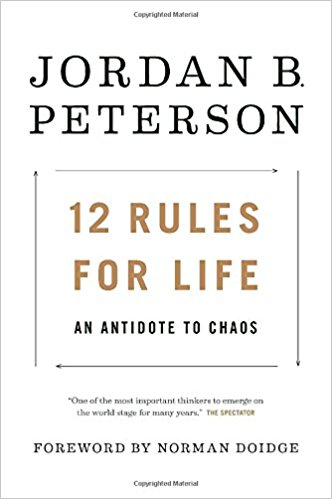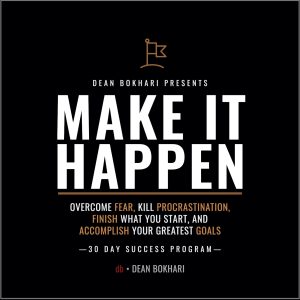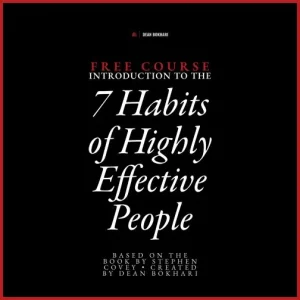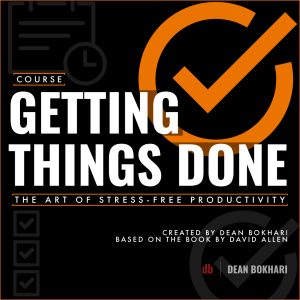
12 Rules For Life: An Antidote To Chaos
By Jordan B. Peterson
About:
Over the years, (former) Harvard and (current) University of Toronto professor and clinical psychologist Dr. Jordan B. Peterson has developed what he believes to be a definitive set of rules for leading a successful and fulfilling life. Originally conceived of with 40 rules, Peterson has condensed them into a well thought out, manageable list of 12 total rules that he shares in this book. He believes strongly in truth telling, human hierarchy, and gender roles. He believes that suffering is an inevitable aspect of life, that we can usher in heaven or hell on earth, and that people have it within themselves to create order out of chaos. It’s also worth noting that this is an aggressive, in-your-face kind of Self-Help book — one which he packages and presents as the intersection of “ancient wisdom” and “scientific research.” Much of the ancient wisdom seems to come from religious scripture, while the scientific research serves as a way to backup the beliefs the author already holds near and dear to his heart. Nonetheless however—regardless of whether you consider yourself religious, un-religious, or somewhere in between—this is a powerful book that can help you develop a higher sense of self-discipline and self-reliance.
Here’s What You’ll Learn About in This Summary:
- The powerful impact of always telling the truth—no matter what.
- The benefits of paying close attention to the world around you.
- How to turn life’s most chaotic situations into successful ones.
Crucial Quotes
“We must each adopt as much responsibility as possible for individual life, society and the world. We must each tell the truth and repair what is in disrepair and break down and recreate what is old and outdated. It is in this manner that we can and must reduce the suffering that poisons the world. It’s asking a lot. It’s asking for everything.”
“Clear rules and proper discipline help the child, and the family, and society establish, maintain, and expand the order that is all that protects us from chaos and the terrors of the underworld. Where everything is uncertain, anxiety provoking, hopeless and depressing. There are no greater gifts that a parent can bestow.”
“The successful among us delay gratification. The successful among us bargain with the future.”
Tweetable Summary
Always tell the truth. Admit and learn from the past, make order of its chaos, and work towards not repeating the same mistakes. Pay close attention.
Links
Downloads
THE BIG IDEAS:
1. Stand Up Straight With Your Shoulders Back
“Standing up straight with your shoulders back is something that is not only physical, because you’re not only a body, you’re a spirit so to speak, a psyche as well. Standing up physically also implies and invokes and demands standing up metaphysically. Standing up means voluntarily accepting the burden of being.”
Using examples from nature, like the humble lobster, Peterson explains the importance of understanding dominance. How order and chaos work together, how paying attention to your posture, speaking your mind, walking tall, and being daring encourages serotonin to flow and portrays an image of competence to the world. In return you will begin to be less anxious, more confident, and increase the probability of good things happening in your life.
This newfound confidence will help you develop grit to be bold during difficult times. It will help you face the terror of the world and still find joy. Here’s how Peterson sums up this first rule for life:
“So, attend carefully to your posture. Quit drooping and hunching around. Speak your mind. Put your desires forward, as if you had a right to them— at least the same right as others. Walk tall and gaze forthrightly ahead. Dare to be dangerous. Encourage the serotonin to flow plentifully through the neural pathways desperate for its calming influence. People, including yourself, will start to assume that you are competent and able (or at least they will not immediately conclude the reverse). Emboldened by the positive responses you are now receiving, you will begin to be less anxious. You will then find it easier to pay attention to the subtle social clues that people exchange when they are communicating. Your conversations will flow better, with fewer awkward pauses. This will make you more likely to meet people, interact with them, and impress them. Doing so will not only genuinely increase the probability that good things will happen to you— it will also make those good things feel better when they do”
Actionable insight(s):
- Often times, your feelings follow your physiology. When you don’t feel confident stand up taller with your shoulders back. You will appear more confident to others and a chain reaction will occur that, given time and consistency, will help you become a more confident individual.
2. Treat yourself like someone you are responsible for helping.
“Strengthen the individual. Start with yourself. Take care with yourself. Define who you are. Refine your personality. Choose your destination and articulate your being.”
It is easier to show sympathy to others, including animals, than it is to self. Part of the reason is because there is no greater critic than the self. The self knows all of its flaws. But you should take care of yourself in the same way that you would take care of someone else that you love.
Give yourself grace, you have a responsibility to care of yourself. You must consider what is truly good for you, not what you want or what would make you happy—but what is actually good for you.
Actionable insight(s):
- Reward yourself for doing unpleasant tasks that you do not want to. Make sure you follow through with the promised reward. Example, take yourself out for a coffee after doing paperwork you don’t want to do.
- Get to know yourself in the same way you would get to know a new friend.
- Articulate your own principles, discipline yourself, and keep the promises you make to yourself.


 Free Course: Intro to The 7 Habits of Highly Effective People by Stephen Covey • Instructed by Dean Bokhari.
Free Course: Intro to The 7 Habits of Highly Effective People by Stephen Covey • Instructed by Dean Bokhari.
